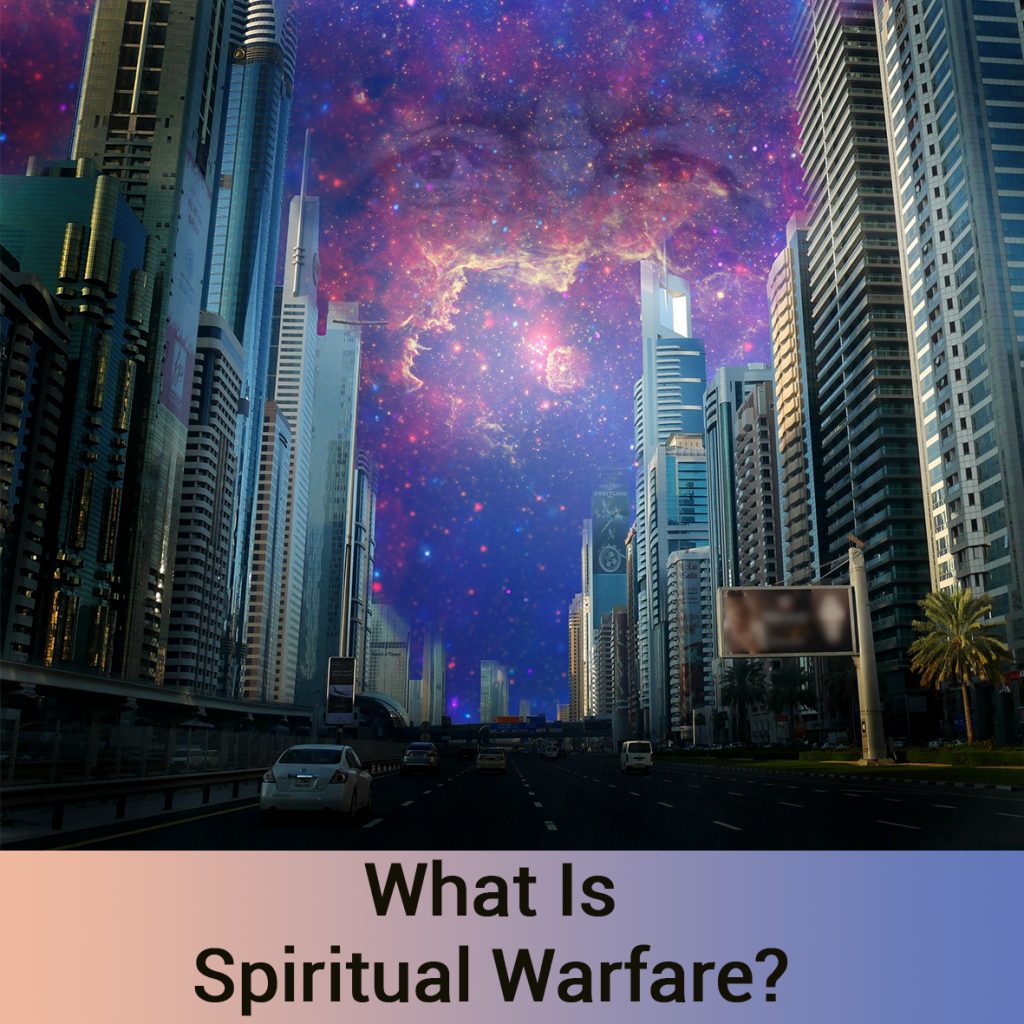3 Crucial Questions About Spiritual Warfare
What Is Spiritual Warfare?
The question about spiritual warfare tends to conjure up images of “The Exorcist” or “The Salem Witch Trials”,[1] therefore many prefer to ignore it altogether. But an accurate understanding of this topic is necessary since Satan has a temporal, territorial reign on this earth.[2] Reformation scholar, Heiko Oberman notes that:
“…belief in the devil’s opposition to Christ and the gospel “is such an integral part of the Reformation discovery that if the reality of the powers inimical to God is not grasped, the incarnation of Christ, as well as the justification and temptation of the sinner are reduced to ideas of the mind rather than experiences of faith.” (Arnold 2011, 265-269)
The biblical worldview as opposed to other views such as Eastern philosophy and naturalism[3] best explains our bondage under, the world, the devil, and the flesh as shown in Ephesians 2:1-3:
“And you hath he quickened, who were dead in trespasses and sins: wherein in time past ye walked according to the course of this world, according to the prince of the power of the air, the spirit that now worketh in the children of disobedience: among whom also we had our conversation in times past in the lusts of our flesh, fulfilling the desires of the flesh and of the mind; and were by nature the children of wrath, even as others.” (Scofield 1909, KJV)
In Christ we escape the bondage (Ephesians 2:4-10). After salvation, sin is no longer a compelling force.[4] We live this Christian life in anticipation of the age to come, knowing that this present evil age will come to an end. However, whilst in the body, we live with the tension[5] of being new creatures in Christ who still feel the struggle and conflict[6] of the flesh, the world and the devil. That is spiritual warfare. We remain in battle with supernatural opponents,[7] plundering the strong man’s possessions with every soul won for Jesus.
[1]. Arnold, Clinton E. 3 Crucial Questions about Spiritual Warfare (Three Crucial Questions) (Kindle Locations 132-137). Baker Publishing Group. Kindle Edition.
[2]. Ibid, 181-185
[3]. Ibid, 356-385 synthesized and summarized
[4]. Ibid, 468, 494, 618, 1555, 2144, 2676 synthesized and summarized
[5]. Ibid, 204
[6]. Ibid, 204-209 synthesized and summarized
[7]. Ibid, 545-498 synthesized and summarized
Can a Christian be Demon-Possessed?
When asking this question, the term ‘demonized’ is preferable[1] but a better question would be, ‘Can a Christian come under a high degree of influence by a demonic spirit?’
Evil is present with the Holy Spirit[2] in a Christian’s body when sin reigns.[3] The state of the temple at the beginning of the reign of King Josiah[4] and the spatial language of giving the devil a foothold, as well as other scriptures, support the idea that evil can reside in the same space where the Holy Spirit is present. Demonic spirits can attach[5] themselves to us in the same space as, but not at the core where the Holy Spirit resides[6] They can have an influence over the person via his will, mind and emotions.[7] Demonic spirits will work with the ‘old self’ and the ‘fleshly’ impulses, inciting us to sin.[8] They can assert control via temptation, false teaching, guilt, fear, doubt, physical attacks and persecution[9]. Habitual sin can increase demonic influence.[10] Even believers have been known to struggle with Dissociative Identity Disorder (DID), formerly known as, Multiple Personality Disorder (MPD). This Disorder has been associated with demonic influence. The international community of health professionals now acknowledge this possibility and call it Trans Possession Disorder (TPD).[11]
[1]. Arnold, Clinton E. 3 Crucial Questions about Spiritual Warfare (Three Crucial Questions) (Kindle Locations 1384-1464). Baker Publishing Group.
[2]. Ibid, 1491
[3]. Ibid, 1635
[4]. Ibid, 1502
[5]. Ibid, 1524
[6]. Ibid, 1550
[7]. Ibid, 1545
[8]. Ibid, 1524
[9]. Ibid, 1797-1873 synthesized and summarized.
[10]. Ibid, 1558
[11]. Ibid, 1881-1931 synthesized and summarized.
Are We Called to Engage Territorial Spirits?
Biblical and historical evidence supports the existence of territorial spirits,[1] but not the engagement of territorial spirits.[2] It is not a scriptural notion.[3] Hence, some would caution church leaders against Strategic-Level Spiritual Warfare (SLSW)[4] which involves discerning and naming the city’s territorial spirit,[5] dealing with the corporate sin of the city and engaging in warfare prayer against the territorial spirits. Advocates of SLSW emphasize that our authority in Christ is over all the power of the enemy.[6]
We can, indeed, question the need for a strategy since God directs his angels concerning us, as He did for Daniel.[7] Folk in occult arts of antiquity named evil entities in the belief that they would gain more authority over them. They also sought ley lines of spirits as with modern ‘spiritual mapping’[8] which, therefore, also has its roots in the occult. Otis redefines the idea of ‘spiritual mapping’ to the concept of a ‘spiritual profile’. This can be beneficial[9] since it is primarily information gathering and it can lead to prayer being more specific and can be useful in developing training programs that have more relevance for the folk of the territory where information was gathered. ‘Identificational repentance’[10] is problematic[11] since believers try to remove punishment from unbelievers[12]. Identificational repentance has an appropriate variation[13] amongst believers[14] as we see in the book of James.[15] This lends itself to the concept of corporate purity.[16]
[1]. Arnold, Clinton E. 3 Crucial Questions about Spiritual Warfare (Three Crucial Questions) (Kindle Locations 2880-3069). Baker Publishing Group.
[2]. Ibid, 3076, 3108 synthesized and summarized.
[3]. Ibid, 3266
[4]. Ibid, 3080-3084 synthesized and summarized.
[5]. Ibid, 2794-2829 synthesized and summarized.
[6]. Ibid, 3108
[7]. Ibid, 3125
[8]. Ibid, 3418
[9]. Ibid, 3422, 3893 synthesized and summarized.
[10]. Ibid, 3455-3618 synthesized and summarized.
[11]. Ibid, 3508
[12]. Ibid, 3512
[13]. Ibid, 3560-3585 synthesized and summarized.
[14]. Ibid, 3511-3525 synthesized and summarized.
[15]. Ibid, 3563-3568 synthesized and summarized.
[16]. Ibid, 389


